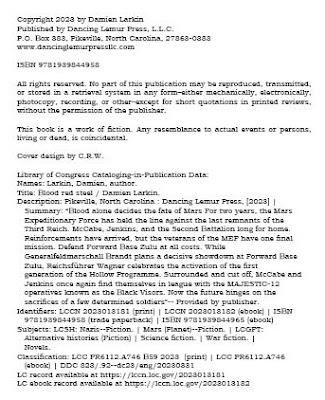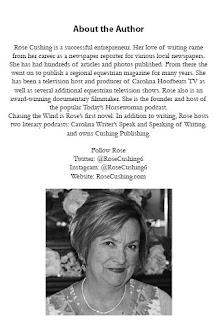Dear fellow writer,
Are you considering applying for something, but it seems like there's no way you'd be the one chosen? Maybe you want to apply for a workshop or a residency, a grant or a job, or maybe you’re just worrying about submitting a piece you’ve written.
Going through an application process can change your life, and not just if you get chosen.
When I wrote the first iteration of this message, my tiny publishing company, Thinking Ink Press, was a finalist for the Innovative Voices program of the Independent Book Publishers Association.
Turns out we did get into the program (yay!), but even if we hadn’t, the application process changed my relationship to the work we do.
Before, I didn't really know what we did, besides publish books.
Now, because we were forced to articulate our mission and values for the application, I feel confident in what we stand for and excited to find new projects that fit our vision.
For the application, we had to look at our past work and explain why it supports diversity, equity, inclusion, and belonging. Seeing our published books in that light made me realize that we aren’t just a group of people who care about those things and also run a publishing company. Instead, our company as an entity values those things and bases its actions upon them. The application process made me prouder of the work we've done so far, and it helped me see all our books in the bigger context of what we care about as a press.
Another part of the application was stating our mission. I think we’d all been trying to define our mission for years. We started our press as a group of friends who love books, and we chose what to publish based on opportunities that presented themselves, with the thought that in the future we would see a pattern. Applying for Innovative Voices was just what we needed to see that pattern. The application process helped us reflect on our past work and create a focused mission statement that we believe in.
A final part of the application was to talk about future projects. While we were discussing this, we got the idea for a science fiction anthology about neurodivergent humans interacting with aliens. We are very excited about this project, but I don’t think we would have committed to it, or possibly even thought of it, if we hadn’t applied for Innovative Voices.
It’s been great to meet the other publishers in the program, and to receive the help offered through it. But I feel we gained something even more important by going through the application process. We know who we are now and what matters to us in our work.
I think back on other things I’ve applied for, and I see the same pattern: applying for a job causes me to consider what I care about in order to write a résumé. Submitting a story forces me to finish the story and commit to its details, as well as to choose a venue I’d be proud to appear in, and also to become willing to be known as the author of that particular story. Asking someone if they want to write together creates a deeper commitment to my own writing and helps me understand how I want to show up as a writer. Even when these things result in rejection, which they often do, I still gain from the process because I better understand myself and what I want to focus on in my life.
So if you're on the fence about applying for something, I say go for it.
Not just because you might get chosen (because, hey, you might), but because the process of applying can help you choose yourself.
Love,
Keiko O’Leary
Co-founder, Thinking Ink Press
P.S. Thinking Ink Press is a traditional publisher. We welcome you to submit your work.
- Submit to the science fiction anthology
- Submit flash fiction and poetry to be published as postcards and mini books (my favorite!)
- For other projects, see our submission guidelines
Thinking Ink Press all four of us - Keiko, Anthony, Liza, Betsy
Keiko O'Leary is a co‑founder of Thinking Ink Press, where she edits manuscripts and publishes books. She also works on innovative formats such as flash fiction postcards and mini books folded from a single sheet of paper. She is the author of Your Writing Matters: 34 Quick Essays to Get Unstuck and Stay Inspired. Connect with Keiko at KeikoOLeary.com.









